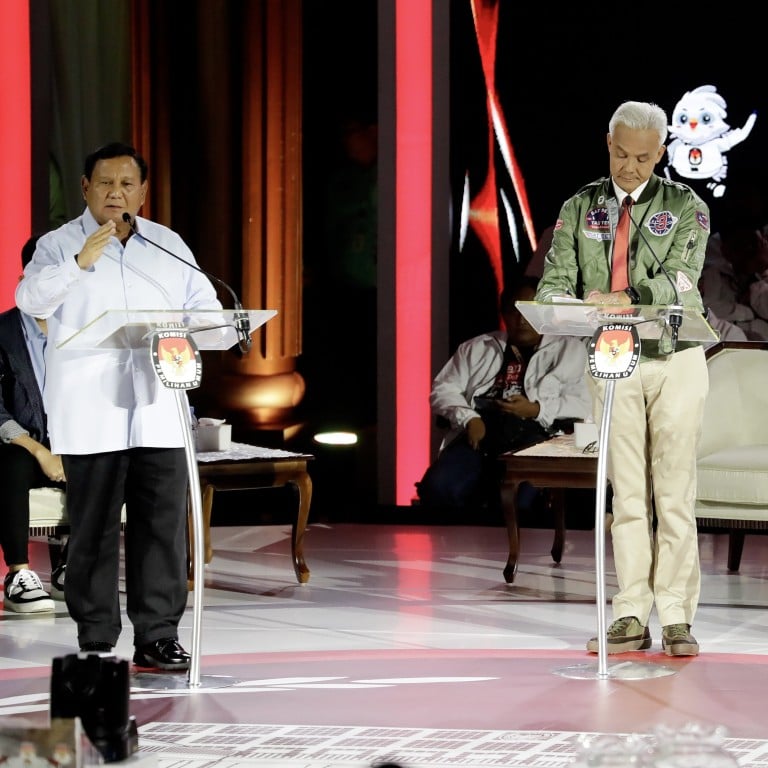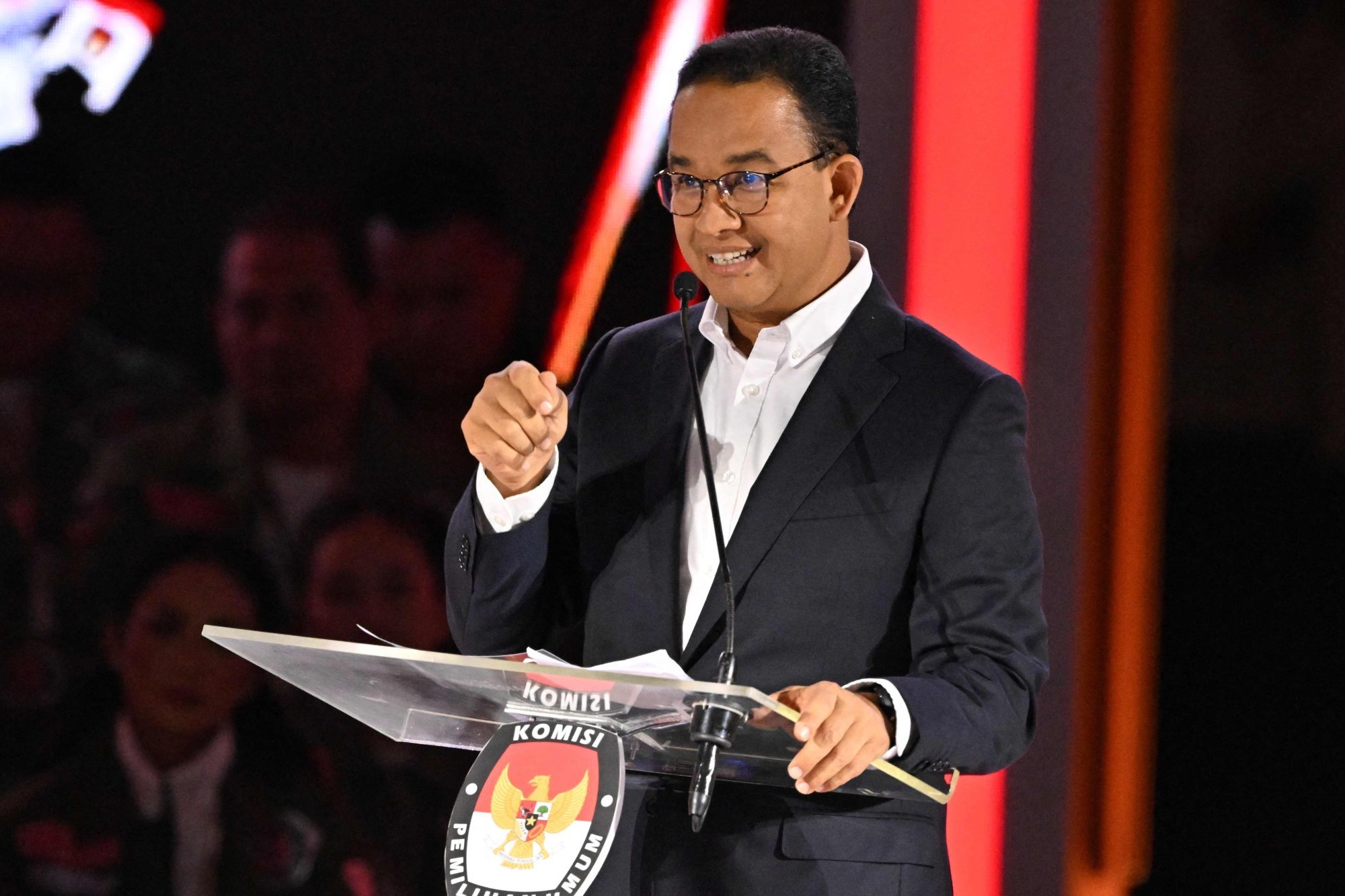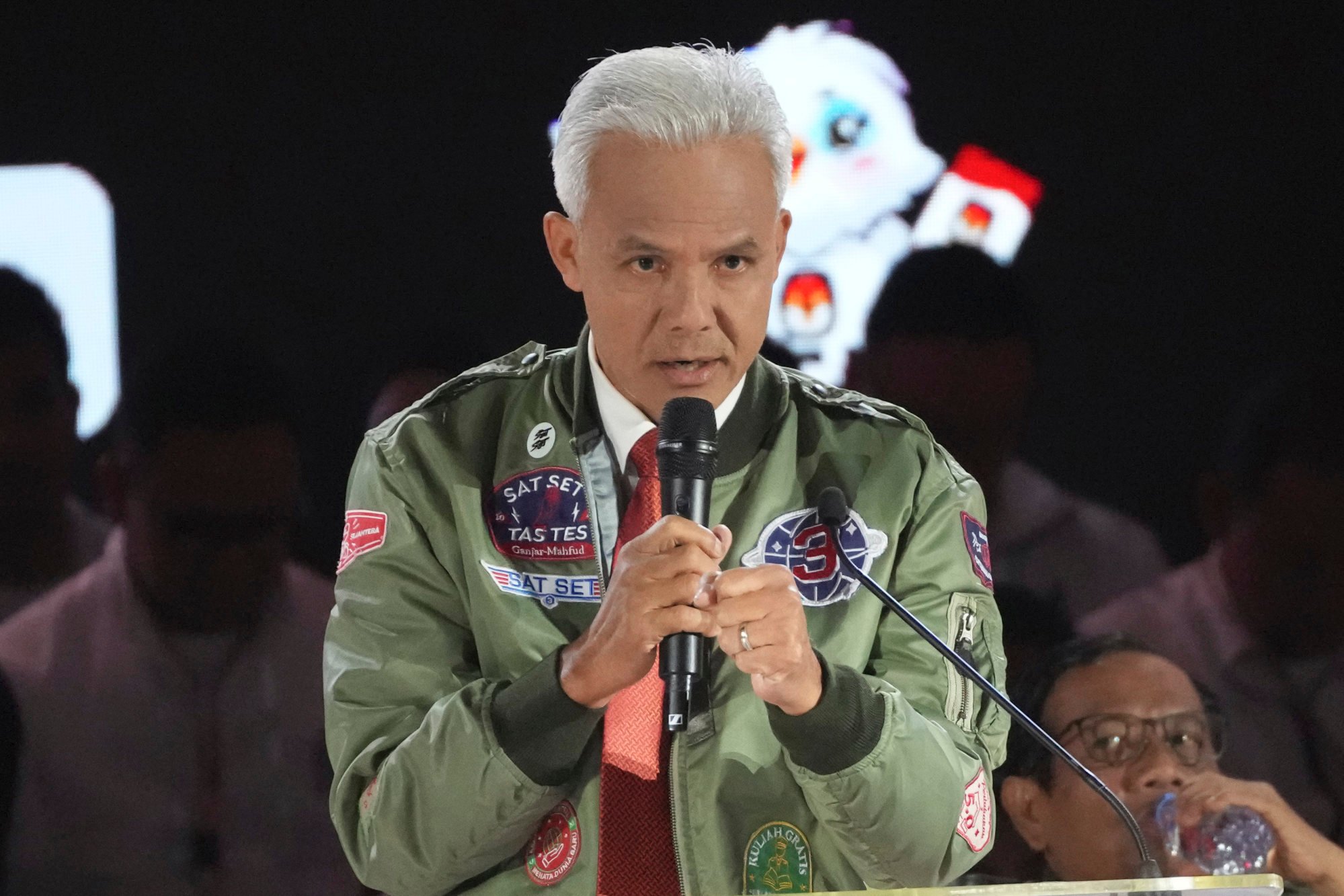
Indonesia election 2024: Anies, Ganjar attack Prabowo over defence, China policies in third presidential debate
- Presidential hopefuls Anies Baswedan and Ganjar Pranowo criticised Prabowo Subianto’s performance as defence minister, including a deal to buy used fighter jets
- Analysts said while none of the three candidates stood out, Anies displayed the most ‘strategic vision’ while Prabowo was constantly on the back foot
Having helmed the defence portfolio for the past five years, Prabowo Subianto should have had the upper hand but analysts said the presidential front runner spent an outsize amount of his time deflecting attacks from his rivals, former Jakarta governor Anies Baswedan and former Central Java governor Ganjar Pranowo.

Just four minutes into the debate, Anies took aim at the defence ministry’s decision “to buy used defence equipment” with its budget of 700 trillion rupiah (US$45 billion). He also criticised Prabowo’s purported wealth.
“While half of our soldiers do not have official residences, its minister owns 340,000 hectares of land,” said Anies, who also noted the defence ministry had been hacked last year.
In November, a hacker claimed to have stolen 1.64 terabytes of sensitive files from the defence ministry’s website.
Prabowo denied Anies’ claim that he owned that much land, before setting out his vision for Indonesia’s defence if he were elected president, which included strengthened military power and the continuation of Indonesia’s free and active foreign policies.
Free and active tenets mean that Indonesia is free to befriend and make deals with any countries, while playing an active role in the international community, particularly to maintain peace.
In Indonesia VP debate, Gibran spars with rivals over new capital, economic plans
“History teaches us that without military power, a nation can be trampled, like Gaza, whose resources were taken,” said Prabowo, in a claim that incited backlash online.
Ganjar also pounced over Prabowo’s now-cancelled deal to buy the Mirage fighter jets, as well as the defence ministry’s inability to realise its plan to modernise the military’s equipment by next year.
Indonesia’s defence budget should account for at least 2 per cent of the GDP, but so far it only accounts for 0.7 per cent, Ganjar said.
“Your planning is too reckless and you are not serious in managing the domestic defence industry. I am doubtful of [the way] you manage the defence budget in Indonesia,” Ganjar said to Prabowo, before rating his ministry’s performance a five out of 10.

The China question
Asked by the panellists how the three presidential candidates would prevent foreign debts from being used by other countries to subvert Indonesia’s sovereignty, Prabowo said he was “not worried”.
“It turns out that currently our foreign debt, as a ratio to GDP, is one of the lowest in the world, at around 40 per cent. With prudent and good management, and the right economic strategy, especially through downstreaming, we can now strengthen our bargaining position,” the 72 year-old said.
“I’m not too worried about other countries wanting to intervene with us. We are highly respected, we never default [on our debt]. We must have a strong defence force so that we cannot be intervened.”
From India to Indonesia, 2024 is Asia’s election year. But will anything change?
Indonesia’s foreign debt in the third quarter of 2023 was recorded at US$393.7 billion, or 28.9 per cent of it GDP, according to data from the central bank.
That didn’t stop Ganjar from warning about relying on foreign debt to fuel development.
“Debt can be deadly. Be careful if we take on debt, especially [to fund] infrastructure projects that have high risks. We need to be prudent. Foreign debts have caused many countries to collapse,” he said, without naming any country.
“[It] highlights how our defence modernisation policy and ambitious development are actually dependent on foreign debt and not national fiscal capacity,” he said.
“These three candidates are not brave enough to talk about China, even though it’s important. This is an elephant in the room, because all of Jokowi’s policies really depend so far on China’s capital expansion,” he said, referring to president Joko Widodo’s popular nickname.
The US-China rivalry
South China Sea: Beijing, Asean claimant states risk further conflicts in 2024
Ganjar said he would bring the defence budget up to 2 per cent of GDP, appoint an ambassador to promote cybersecurity and the digital economy, as well as boost maritime defences, while Anies said he would provide security to everyone, increase Indonesia’s involvement in international matters and stop the colonisation of Palestinians.
“Prabowo underperforms, Ganjar doesn’t make that much of an impact, unfortunately, and Anies is a clear winner,” Yohanes Sulaiman, a politics and security analyst with Ahmad Yani University in West Java, said on X.


